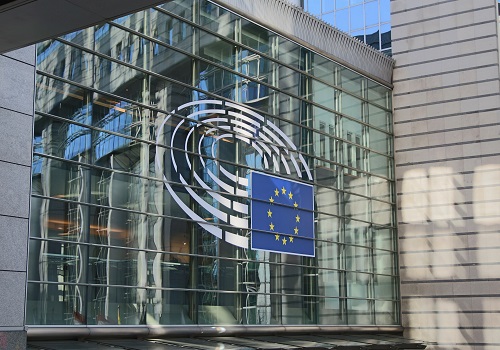
Status quo of the EPBD and GEG amendment
11.04.2023
Current developments in European policy on building directives
On 14 March 2023, the EU Parliament adopted its position on the amendment of the European Buildings Directive (EPBD). An essential component of the directive is the introduction of minimum efficiency standards for the worst performing existing buildings (MEPS), which all EU institutions now support. The three institutions, the EU Parliament, the EU Commission and the EU Council, will now vote on the details of the directive in a trilogue.
The vote is in particular a signal to the member states, and thus also to Germany. Since the trialogue is still pending, the specifications for the MEPS are preliminary and the design is still unclear.
With this EU directive, the German government will also pursue its overall concept to achieve climate neutrality in the building sector and affordable heat through corresponding new legal regulations. Among other things, it is planned to define concrete criteria for necessary energy refurbishments in the building sector as a tool to reduce emissions.
In Germany, buildings of homeowner associations (HOAs) in particular have enormous emission reduction potential: 66% of all apartment buildings were built before the first Heat Insulation Ordinance of 1977 (Institut f. Wohnen und Umwelt, Darmstadt). In order for energy retrofits to be implemented in WEG buildings, better WEG-specific legal and financial frameworks are needed that are easily accessible so that they can be used effectively.
It is already foreseeable that the MEPS will be introduced so that the worst existing buildings will have to be tackled first. Waiting and seeing can be risky – the extent to which the subsidy programmes that support owners with renovations will continue to be so well funded will be shown in the coming federal budget debates.
How will the EPBD be transposed into national law?
Current developments at the German level: The 2nd amendment to the Building Energy Act:
– As early as 1.1.2024, every newly installed heating system is to be operated with 65 percent renewable energies
According to the coalition agreement, the energy transition in the heating sector is a key area for the German government to achieve its climate policy goals. A rapid change of direction in the area of building heating is to be a central building block. From 1 January 2024, every new or replacement heating system is to be operated with at least 65 percent renewable energies. This is the result of the draft of the responsible Ministries for Economic Affairs and Climate Protection (BMWK) and for Housing, Urban Development and Building (BMWSB), which is currently being heard by associations. The 2nd amendment to the Building Energy Act (GEG) is to be passed before the parliamentary summer recess.
Now that the government has, after a lengthy struggle, agreed on various mitigations with regard to permitted exceptions, the concrete form of the law will only be clearly determined after the parliamentary legislative process.
In order to achieve the climate protection goals, however, it is already clear that boilers may be operated with fossil fuels until 31 December 2044 at the latest. Even gas boilers will then only be permitted if they are operated 100 percent with “green gases”. According to the draft, the federal government is primarily relying on the expansion of district heating networks and heat pumps, supplemented by geothermal systems and solar thermal energy.
Structurally, the planned new regulations will entail a long decision-making process, especially in condominium owners’ associations. Special features for the procedure in condominium owners’ associations, which (partly) still have decentralised floor heating systems, are therefore described in detail in a separate standard in order to be able to plan implementation concepts in the long term. After an initial revision, the deadlines have been extended to up to 13 years for a corresponding conversion of the heating system.
It is currently still unclear how a socially just implementation of the plans and a corresponding subsidy for the heating system renewal will look, which will be financed with funds from the Climate and Transformation Fund and is expected to become part of the guidelines of the Federal Support for Efficient Buildings (BEG).
It therefore remains to be seen with what concrete regulatory content the Building Energy Act (GEG) will enter into force, underpinned by a corresponding funding system in the Federal Promotion for Efficient Buildings (BEG).
Finally, it has been announced that a 3rd amendment to the GEG will come in 2024, in which the requirements of the EPBD that has come into force are to be incorporated (such as MEPS and solar obligation).



